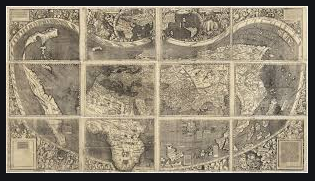History & Politics in St Vincent
St Vincent and the Grenadines have some of the most extensive history and politics in the Caribbean. Throughout most of their history, they have not been known nor seen as an independent nation. When they finally did reach independence though, they shaped their governmental system based on how they were influenced in earlier times. Even today, they run a government similar to the one they were previously conquered by.
Throughout its early history, St Vincent has mostly been in ownership by European Nations. It started out with the early Vincenteans protecting their land from the Europeans in 1719 before finally being “dominated by the French”, as stated in the Caribbean library (Source 1).
The French would later pass ownership to the British, who would use it as a place to grow cash crops. The country would be passed around by the two countries like a beach ball for almost a century, with St Vincent and the Grenadines ceding to the British in 1763, as stated in ST. VINCENT & THE GRENADINES HISTORY (Source 2). It would then be restored to the French in 1779, and finally regained by the British in 1783 due to the Treaty of Paris.
Up until St Vincent and the Grenadines officially gained independence in the late 1970’s, they were ruled by the British. When the people of St Vincent voted to achieve their independence, they would later end up constructing a government similar to the ones they were previously ruled by long ago.
The system of government run in St Vincent and the Grenadines is a Unitary parliamentary constitutional monarchy, with the Queen of England, Queen Elizabeth II, as head of state, as stated in Source 3.
In 2001, after the results of the St Vincent general election were released, Dr. Ralph Gonsalves was appointed to the prime minister position in favor of the Unity Labor Party over the New Democratic Party. This records the first time in seventeen years that the Unity Labor Party wins their prime minister selection over the New Democratic party (Source 3).
Image of Dr. Ralph Gonsalves (Source 4)
Throughout the years, the politics of St Vincent were mostly unpolarized. But the country would experience a huge polarization in politics over a referendum to replace the country’s constitution in 2009. As stated on caribbeanelections.com this constitution practically divided the country with only forty-three percent of voters in favor of the new constitution, which had rather traditional values instilled (Source 5).
Today, St Vincent promotes democracatic changes in politics. As stated by the Commonwealth Ministerial Action Group, which is a voter activist group stationed in areas of the Caribbean, encourage citizens to vote. (Source 6). The politics nowadays are less polarized than they were back in 2009.
People of St. Vincent in a voting line (Source 7)
Sources
St.Vincent and the Grenadines. 2020, ggccaribbean.wpengine.com/listing/st-vincent-and-the-grenadines/.
Unknown. ST. VINCENT & THE GRENADINES HISTORY. 2010, legacy.soulofamerica.com/index.php?id=7608%2C13212%2C0%2C0%2C1%2C0.
Site designed and built by Hydrant (www.hydrant.co.uk). “St Vincent and The Grenadines : Constitution and Politics.” St Vincent and The Grenadines : Constitution and Politics | The Commonwealth, 2020, thecommonwealth.org/our-member-countries/st-vincent-and-grenadines/constitution-politics.
Unknown. Dr. Ralph Gonsalves. 8 Oct. 2020, www.caribbeannationalweekly.com/wp-content/uploads/2020/10/ralph-gonsalves.jpg. Accessed 16 Oct. 2020.
Unknown. Brief Political History and Dynamics of St. Vincent and the Grenadines. 2015, caribbeanelections.com/vc/education/history.asp.
Site designed and built by Hydrant (www.hydrant.co.uk). Promoting Democracy. 2020, thecommonwealth.org/our-work/promoting-democracy.
“St Vincent and the Grenadines: Interim Statement on 2015 Elections.” thecommonwealth.org, 12 Dec. 2015, thecommonwealth.org/sites/default/files/styles/press_release_large/public/images/news-item/St%20Vincent%20election%20620_0.jpg?itok=lPmOWXtU.

Comments
Post a Comment